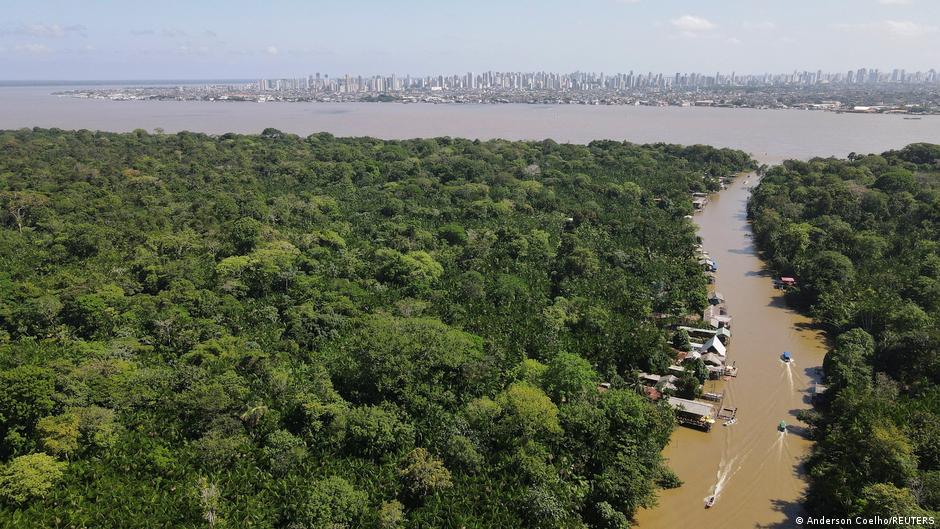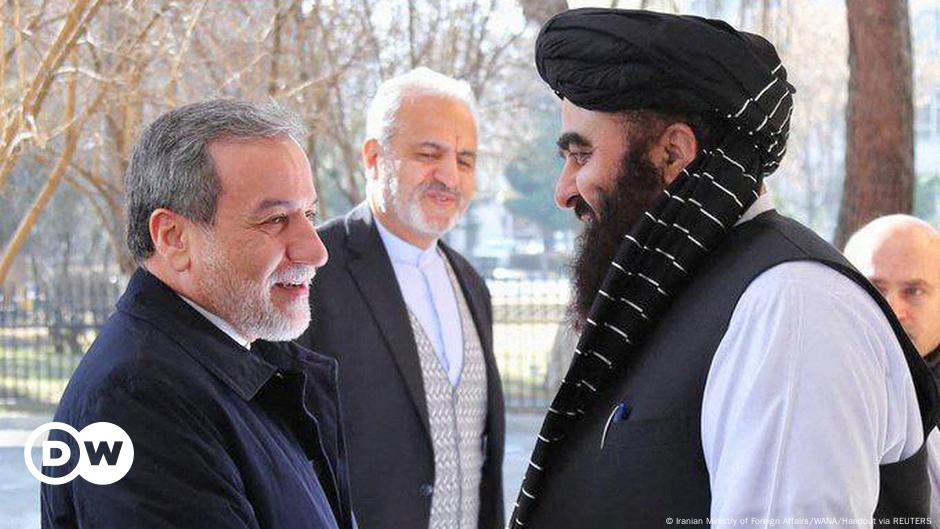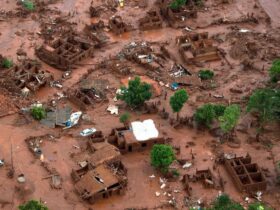Brazil knows how to perform. From the World Cup and Olympics to the recent free Lady Gaga concert that attracted millions to Copacabana Beach, some countries love staging global spectacles.
Next is the most important annual event of climate diplomacy, the United Nations Climate Summit, known as the COP.
Thirty years after the first conference in Berlin, thousands of delegates will gather in the Amazonian city of Belém for two weeks of talks aimed at tackling the climate crisis that is already transforming the planet.
Last year was the hottest on record, with rising temperatures causing deadly floods in Pakistan, wildfires across Europe and heat waves that scorched Brazil and large parts of the world last summer.
As war and geopolitical tensions continue to dominate, COP30 President Andre Correa do Lago stressed the urgency of the problem, saying the conference will take place in a world “at the epicenter of the climate crisis”.
But as Brazil steps into the global spotlight, it faces its own contradictions when it comes to tackling climate change, including trying to balance preserving the Amazon rainforest with growing its economy.
Why is COP30 being organized in the Amazon?
The selection of Belém to host the event has not been without controversy. Due to the shortage of hotel rooms, some local businesses have been accused of making money by raising prices and there is immediate concern about affordability for delegates and visitors.
Nevertheless, the election holds symbolic significance. The city is known as the “gateway” to the Amazon, one of the most biodiverse and climate-critical regions in the world.
Vast rainforests help regulate global climate by storing billions of tons of carbon. But scientists warn it’s getting closer dangerous tipping point On which rising temperatures and deforestation can lead to widespread forest destruction.
For many, this makes Belém the perfect backdrop for negotiations.
It is on the “front lines of climate change” where people can see its effects, such as extended fire seasons and drought, said Claudio Angelo, chief communications officer at Climate Observatory, a network of Brazilian NGOs.
The location also allows Brazil to showcase its efforts to curb deforestation, its largest source of emissions.
Since Luiz Inacio Lula da Silva returned to the presidency in 2022, Brazil has reversed the increase in deforestation seen under predecessor Jair Bolsonaro, who rolled back forest protections. Lula’s government has promised to end deforestation by 2030, and rates have fallen 30% in the last year.
But progress faces new challenges. Brazil recorded nearly 200,000 wildfires last year, burning an area larger than Belgium and producing emissions equal to the annual emissions of Germany. While many fires originate from clearing land, drier and hotter conditions mean they burn faster and more ferociously.
The decision to clear part of the rainforest to build a large highway to Belém, intended to ease traffic during COP30, faced backlash.
What is Brazil doing for the climate?
Brazil is one of the world’s top climate polluters, contributing about 2.5% of total global emissions. It has committed to reducing greenhouse gas emissions by 59–67% by 2035 compared to 2005 levels. The South American country is also a renewable powerhouse, with about 90% of its electricity coming from clean energy sources like hydroelectric, wind and solar.
At the same time, Brazil plans to accelerate fossil fuel production and is “bent” on becoming the world’s fourth-largest oil producer, Angelo said. Lula’s approval of new drilling at the mouth of the Amazon has been sharply criticized by environmentalists.
In 2023, Brazil joined other countries at COP28 in Dubai to agree to move away from fossil fuels, the main driver of global warming. But officials argue that rich countries should lead the decarbonization race. As a developing nation, they say Brazil has the right to explore its own oil reserves, as industrialized countries already profit from fossil fuels.
Speaking to DW in July, COP30 President Correa do Lago said the income from exporting these assets could help the country transition away from fossil fuels. Nevertheless, critics in Brazil and abroad noted the contradiction of the COP host advocating climate action while expanding oil production, a charge also leveled at previous hosts Azerbaijan and the United Arab Emirates.
The extension is a “contradiction in Brazil’s climate policy”, despite ambitious national climate pledges for COP30, Angelo said.
Environmental protection also faces another hurdle in the form of a draft law – dubbed an “extermination bill” by activists. Backed by a powerful agribusiness faction in the Brazilian Congress, the controversial bill aims to loosen environmental protections required in licensing for new infrastructure projects and speed up work on projects considered “strategic” such as highways or hydroelectric dams.
Although Lula vetoed many of the most damaging sections, the fast-tracking provision remains in place. Environmental campaigners warned that this could open the door to still more deforestation and displacement of traditional communities.
What does the world hope to gain from Brazil’s presidency of COP30?
COP30 also marks a decade since nearly 200 countries signed the Paris Agreement, pledging to step up efforts to limit global warming to well below 2 degrees Celsius (3.6 Fahrenheit) and cap the increase at 1.5 degrees Celsius.
Global temperatures are now 1.4C above pre-industrial levels – the baseline before humans began burning fossil fuels on a large scale during the Industrial Revolution. With concentrations of planet-warming CO2 also reaching record highs, countries are under pressure to step up climate ambition and cut emissions, building on a COP28 pledge to move away from fossil fuels.
Despite its oil expansion plans, Angelo says it’s possible Brazil as host could help. He said the first recognition of the move away from fossil fuels came at a COP held in the petrostate UAE in 2023, where one of the event chairpersons was the head of an oil company.
Brazil will also use its presidency this year to officially launch the Tropical Forests Forever Facility (TFFF), a global fund that will pay countries based on how well they protect their forests.
50% of the carbon stored in trees worldwide is stored in tropical forests. Lula has announced that the country will contribute $1 billion (€861 million) to the initiative.
But overall success in Belém will depend on many countries how they bridge the tensions in their climate policy and action.
“We have to overcome our contradictions,” Brazil’s Environment Minister Marina Silva told DW. “They are present in Brazil, in the European Union, everywhere.”
Additional reporting by Vanessa Fisher and Lewis Osborne.
Edited by: Jennifer Collins






Leave a Reply